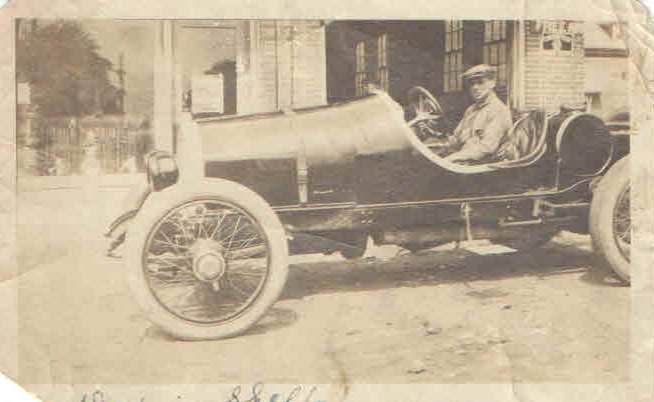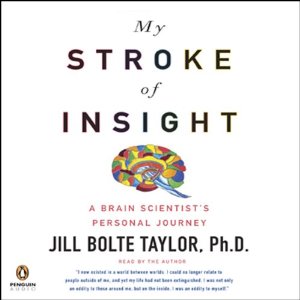Lies Our Parents Taught Us
When my father retired, I asked him what he would do with all his free-time. Habitat for Humanity could use someone like him, I told him, someone with a lifetime of experience in the building trades.
He shook his head bitterly.
Whenever I called my mother, she said he was listening to Bruce Williams – the radio call-in show host – on his headphones, eyes closed, feet up. Not a “shock jock,” Williams addressed each finance-related question with respect. Even though my father didn’t need financial advice, I think he needed Bruce Williams’s calm voice and rational approach to problem-solving.
Even at his age.
My dad was only four when his father – my grandfather – walked out door, leaving a wife and five children to fend for themselves during the Great Depression. Mechanically talented, my grandfather had built the city’s first radio, as well as cars and an airplane. Ultimately he made a break for California, where the aviation industry beckoned. 
I’ve only heard stories about my grandfather, how my father feared him. At night, the man had only to raise an eyebrow over the top of his newspaper and the children scrambled off to bed. As a young child, my father developed a serious stutter (they tried to “correct” his left-handedness) but overcame it with sheer will-power. Otherwise, he said, he would have been punished.
Under such stress, children’s brains have tremendous difficulty functioning.
I’m sure his early childhood trauma, especially being abandoned by his father, caused changes in his brain. His entire life my father had difficulty reading.
I doubt my dad thought of Bruce Williams’s radio show as “therapy” for his wounded inner child.
But I believe it was.
After all those years, long after his father left, he still believed a terrible lie about himself. A lie that lasted until the day he died: that he was unworthy of a father’s love and attention. But he thought if he worked hard enough, and earned enough money, he could somehow make up for it and prove his worth.

And never having overcome that belief, he carried it into his own family. Though present, he wasn’t really there. Like his father, he was unable to experience joy in his own children.
Let’s look at some other lies.
This one is fictional, from the movie My Big Fat Greek Wedding, with Nia Vardalos. Remember the flashback scene in the lunchroom, when Toula’s classmates shun her for being different? Knowing full well that Toula’s lunch contains something unusual, something Greek, a classmate goads her, asking what’s in it.
Toula answers with “moussaka.”
The little snot mocks her, “Moose ca ca?” The other girls twitter in delight, while poor Toula eats her lunch all alone.
Kids like Toula – who is first generation American – suck up all the digs and jabs. They only want to be accepted, so they suffer in silence. They don’t even have the courage to banter back, “I’m rubber you’re glue.”
When you think about the person Toula is at the start of the movie – a young woman with low self-esteem, afraid of her father, no friends – you realize all the emotional damage she’s sustained.
But here’s what rankles me. There’s a theory floating around that it’s your own fault if you get your feelings hurt, not the other person’s fault. One friend said, “You can let it roll off. Don’t let it bother you.”
However, some things are supposed to bother us. It’s called being human. And as humans we are capable of great compassion, fear, joy, jealousy, embarrassment, gratitude, etc.
But when our true nature gets trampled upon, we have the right to our thoughts and feelings. And perhaps a bit of righteous indignation.
Because without righteous indignation, bullies would rule the world.
In My Stroke of Insight: A Brain Scientist’s Personal Journey, anatomist Jill Bolte Taylor documents her own stroke and recovery. In it, Bolte Taylor says we are emotional beings before we are thinking beings, due to the way the brain is wired. In other words, our emotions inform our thoughts.
I think when people say they don’t let words affect them, it’s because they lack empathy. Even empathy for themselves. Perhaps it’s the way they’re wired.
Some years ago I found a book that explains the nature of functional emotional expression. It’s titled, Expressing Emotion: Myths, Realities, and Therapeutic Strategies, by Eileen Kennedy-Moore and Jeanne C. Watson.
My simplistic take-away from the meaty-read was this: we need not be “ranters.” But we should also not be “stuffers,” suppressing our feelings. There is a middle ground, which is functional expression. And this is what we must strive toward.
Researchers say early experiences play a critical role in creating personality traits.
They certainly did in my family.
Since the science of epigenetics has come to the fore, we can no longer discount the role of environment on DNA expression. We can no longer say, “Well, that’s just the way he is.”
Because it isn’t “just the way he is.”
It’s the way environmental influences, including stress hormones, impacted his genetics, before birth and throughout the first year.
As a mother, I had to go back and identify the lies I believed about myself, the messages I received from the adults in my life, and how they shaped my self-concept.
If parents do not respect our true nature as children, we are forced to become someone else. False selves. We grow up disadvantaged and emotionally handicapped.
It’s as though we are missing the links that clue us in to our true self-worth, and the worth of others. The brain connection isn’t there.
Children may get all A’s in school, march in the band and program computers, but if they do not receive positive feedback – no one identifies their attributes and helps to shape their growth – how can they know how they’re doing in the world?
Perhaps they don’t know they have pretty hair, or a dimple, or an endearing manner. Perhaps they don’t know how well they speak, or how caring they are. This feedback is foundational as children become teens and young adults. It’s not something that can be tacked on as they drive off to college, like an addendum.
There are consequences when children do not receive adequate positive feedback, or no feedback at all – which is a lie by omission.
It’s the crazy-smart 22-year-old, whose father would never buy him school supplies when he was a kid because, “You’re never going to amount to anything anyway.”
It’s the adolescent girl who finds a couple of childish “facts of life” booklets on her bed, because her mother can’t put her discomfort aside and just talk to her.
It’s the kids whose father refuses to play with them because he considers it a waste of time. “Isn’t there work that has to be done around here? Stop being lazy and get on it!”
It’s the little girl whose divorced father watches TV sports during every visitation.
These are real people. And each believed the lies they were taught by their parents.
Let’s look at how a lie is learned. A little scenario.
Ten-year-old Carly’s aunt has just given her a hand-me-down winter coat. When Carly and her mother are in the car heading home, Carly lets it all out.
Carly: “I hate that coat. I’m not wearing it! It’s puke orange and it smells weird.”
Mother: “You’re being ungrateful. Aunt Brenda gave you that jacket and you will wear it.”
Carly: “No I won’t. And I’m never wearing it to school.”
Mother: “Just stop! I am not listening to any more of this rudeness. ”
Carly is really unhappy about the coat.
By snuffing out Carly’s argument, her mom is telling her that she doesn’t have a right to her own thoughts and feelings. Which is really a lie. Mom is also saying she can’t handle her daughter’s strong emotions. Which does not engender trust.
But wait. Carly’s mom doesn’t realize something: she doesn’t have to agree with Carly. She only has to listen, and respect Carly’s right to express her emotions. And that means being stronger than her whining child.
Some experts say children who are not listened to in an accepting way learn to manipulate in order to have their needs met. Instead of just coming right out and asking for what they want, they find some other way of getting it. Carly, for example, might “accidentally” spill something on the unwanted coat as a way of getting her mother to buy a new one. She might “accidentally” lose it.
In addition, research shows that kids who aren’t allowed to argue their corner with parents are at greater risk of peer pressure, and more likely to succumb to harmful behaviors.
What if Carly’s mother showed a bit more empathy? It might go something like this:
Carly: “I hate that coat. It’s a stupid color.”
Mom: “I’m sorry you don’t like the color. But I do appreciate your being polite to your aunt.”
(Good. Mom showed empathy – and gratitude. Let’s see what happens.”
Carly: “It’s orange, Mom! Totally not cool. I can’t wear an orange coat to school. I saw one that I liked in a catalog that came in the mail the other day. Can I get that one?”
Carly’s mom: “You can show it to me when we get home. The thing is, this is a well-made down jacket, and I thought maybe you could use it when the weather gets really cold. Just for knock-around. Maybe for sledding, or shoveling snow.”
Carly: “Maybe. But I am never wearing that coat to school. I would die.”
Mom: “Just let me take it to the dry cleaners. We’ll see how it turns out.”
I can imagine Carly coming around over time. At least a little. To start, her mother showed empathy, respecting Carly’s feelings. She didn’t have to agree with her. Once Mom acknowledged her point of view, Carly felt “heard,” and became more reasonable.
Emotions exist for a purpose. Joy, curiosity, grief, disappointment, etc. play a significant role in our lives. While overwhelmingly negative emotions can have a detrimental effect on individuals and their families, and perhaps even require therapy, I think it’s crazy to wish them out of existence, or to “will” them to “bounce” off.
My father never got over the lies he believed about himself. That was hard. But I would not let my children be subjected to them, because they were worthy of love, attention, and respect. And they got it from their parents. At least I hope they did.
The point of my post is this: It’s important to recognize the lies our parents taught us. It’s too bad they believed them. But the truth is, we were always worthy of love and entitled to our own thoughts and feelings. If we can believe that, then maybe we can get on with the business of raising authentic human beings. FFG







Leave a Reply